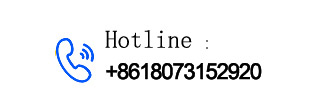

— Products —
 Consumer hotline +8618073152920
Consumer hotline +8618073152920 WhatsApp:+8615367865107
Address:Room 102, District D, Houhu Industrial Park, Yuelu District, Changsha City, Hunan Province, China
Water Quality Sensors
Many organic compounds dissolved in water are absorbent to ultraviolet light. Therefore, the amount of dissolved organic pollutants in the water can be accurately measured by measuring the extent to which these organics absorb UV light at 254nm. The COD-208 online COD sensor adopts two light sources, one is ultraviolet light for measuring COD content in water and the other is reference light for measuring turbidity in water. In addition, the optical path attenuation is compen···
Tel/WhatsApp:+8615367865107
Email:Arvin@niubol.com +Nearly 100 partner company in more than 68 countries. We are committed to providing high-quality, practical products to meet your needs and help you solve problems.Product Details
Many organic compounds dissolved in water are absorbent to ultraviolet light. Therefore, the amount of dissolved organic pollutants in the water can be accurately measured by measuring the extent to which these organics absorb UV light at 254nm. The COD-208 online COD sensor adopts two light sources, one is ultraviolet light for measuring COD content in water and the other is reference light for measuring turbidity in water. In addition, the optical path attenuation is compensated by a specific algorithm and the interference of particulate suspended matter can be eliminated to a certain extent, so as to achieve more stable and reliable measurement. Product features: No reagents, no pollution, more economical and environmental protection Small size, easy installation, and continuous water quality monitoring Measure COD, turbidity and temperature parameters Automatic compensation for turbidity interference With a cleaning brush to prevent bio-adhesion Small drift, fast response, more accurate measurement Excellent stability even for long-term monitoring Maintenance-free, long service life and low cost of use Digital sensor, RS-485 interface, Modbus/RTU protocol Low power design, anti-interference design
| Model | NBL-COD-208 | |
| Measuring principle | Dual wavelength ultraviolet absorption method | |
| Scale range | COD | Turbidity |
| 0~200mg/L equiv. KHP | 0~100NTU | |
| 0~500mg/L equiv. KHP | 0~200NTU | |
| COD Precision | ±5%F.S. | |
| COD Resolution | 0.1mg/L | |
| Turbidity accuracy | ±5%F.S. | |
| Turbidity resolution | 0.1NTU | |
| Calibration method | Two-point calibration | |
| Output method | RS-485 (Modbus/RTU) | |
| Power supply | 12~24VDC | |
| Power consumption | 0.3W@12V | |
| Working conditions | 0~45℃、<0.1MPa | |
| Storage temperature | -5~65℃ | |
| Protection level | IP68 | |
| Installation method | Immersion installation | |
| Cable length | 5 meters, other lengths can be customized | |
| Sensor housing material | 316L stainless steel | |
No reagents, no pollution, more economical and environmental protection
Small size, easy installation, and continuous water quality monitoring
Measure COD, turbidity and temperature parameters
Automatic compensation for turbidity interference
With a cleaning brush to prevent bio-adhesion
Small drift, fast response, more accurate measurement
Excellent stability even for long-term monitoring
Maintenance-free, long service life and low cost of use
Digital sensor, RS-485 interface, Modbus/RTU protocol
Low power design, anti-interference design
The cable is a 4-core twisted-pair shielded wire, and the line sequence is defined:
Red line—power cable(12-24VDC)
Black line—Ground wire(GND)
Blue line—485A
White line—485B
After the wiring is completed, it should be carefully checked to avoid the wrong connection before the power is turned on.
Cable specification: considering that the cable is immersed in water (including sea water) or exposed to air for a long time, the cable has a certain corrosion resistance. All interfaces of cable outer diameter Φ6mm, have been waterproof.
1.1Maintenance schedule
To ensure accurate measurements, cleaning is important, and regular sensor cleaning helps data stability.
Maintenance task Recommended maintenance frequency
Calibrate the sensor (if required by the competent authority) According to the maintenance schedule required by the competent authority
Maintain and check the self-cleaning brush Return to the factory every 18 months for inspection and maintenance of self-cleaning brush
Note: The maintenance frequency in the above table is only a recommendation. Please maintain the sensor according to the actual usage of the sensor.
1) Zero calibration: Take a small amount of turbidity liquid from a large beaker and place the sensor vertically in the solution. After 3 to 5 minutes, the value is stabilized and then zero calibration. The instructions refer to the appendix.
2) Slope calibration: Place the sensor in a solution and place it in a 100 NTU standard solution. After 3 to 5 minutes, the slope is calibrated after the value is stabilized. The instructions refer to the appendix.
1) KHP(Potassium hydrogen phthalate , C8H5KO4) , As a commonly used stain for environmental research, it can be used for COD calibration.
2) Preparation of standard solution
a) Accurately weigh 0.8503 g of KHP into a 1000 mL flask. Distilled or deionized water and perfused until the highest scale. This solution is a 1000 mg / L COD solution.
b) Take 100 mL of this solution into a 1000 mL flask and fill it to the highest mark with distilled or deionized water. After shaking, the COD concentration was 100 mg/L. A solution having a concentration of 20 mg/L was prepared in the same manner.
c) The concentrated standard solution (step 2.1) was stored in a black glass vial and stored at low temperature to prevent decomposition. The diluted standard (step 2.2) needs to be used within 24 hours of preparation.
1) 0~200mg/L calibration
A. Place the sensor in a 5mg/L COD solution and verify that all light paths are submerged under water >2cm with no air bubbles. Perform a zero calibration according to the appendix command.
B. Place the sensor in a 200mg/L COD solution and slope calibrate according to the appendix command.
2) 0~500mg/L calibration
A: Place the sensor in a 20mg/L COD solution and verify that all light paths are submerged under water ≥2cm with no air bubbles. Perform a zero calibration according to the appendix command.
B. Place the sensor in a 400mg/L COD solution and slope calibrate according to the appendix command.
KHP have cancer risk and should be worn with gloves.
When calibrating, firstly calibrate the temperature, then calibrate the turbidity and then
calibrate the COD.
If the slope is calibrated, the sensor value does not change within 3 minutes,re-supply
after power is cut off.
Avoid the sun exposure of the sensor
Please do not touch the sensor by hand
Avoid contact with the sensor surface during measurement and calibration
Avoid using any mechanical stress (pressure, scratches, etc.) directly on the sensor during use.
Sensors & Weather Stations Catalog
Agriculture Sensors and Weather Stations Catalog-NiuBoL.pdf
Weather Stations Catalog-NiuBoL.pdf
Related recommendations
 NBL-CL-206 Water Quality Sensor Online Residual Chlorine Sensor
NBL-CL-206 Water Quality Sensor Online Residual Chlorine Sensor NBL-NHN-206 Online Water Quality Ammonia Nitrogen Sensor
NBL-NHN-206 Online Water Quality Ammonia Nitrogen Sensor NBL-RDO-206 Online Fluorescence Dissolved Oxygen Sensor
NBL-RDO-206 Online Fluorescence Dissolved Oxygen Sensor NBL-ZS-206 Online Turbidity Water Quality Sensor
NBL-ZS-206 Online Turbidity Water Quality Sensor NBL-TPS-206 Online Transparency Water Quality Sensor
NBL-TPS-206 Online Transparency Water Quality Sensor NBL-COD-208 Online COD Water Quality Sensor
NBL-COD-208 Online COD Water Quality Sensor
Screenshot, WhatsApp to identify the QR code
WhatsApp number:+8615367865107
(Click on WhatsApp to copy and add friends)
